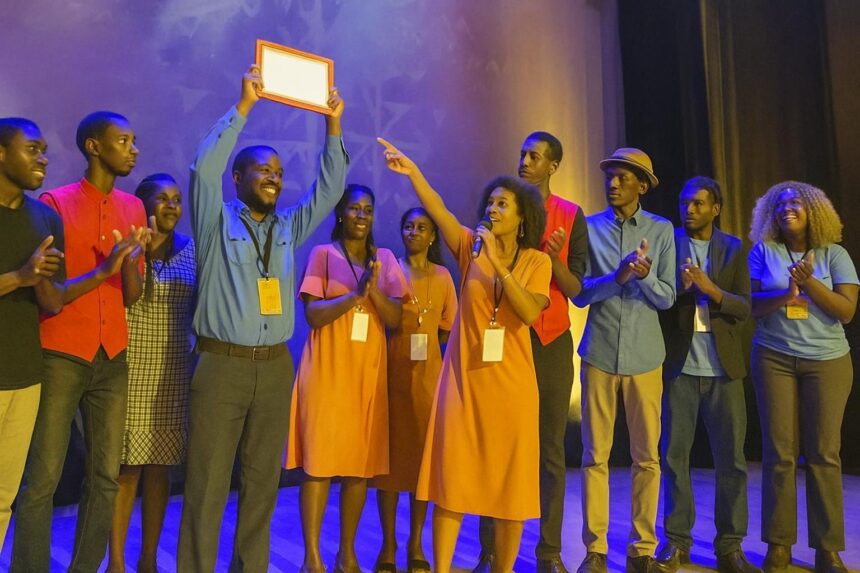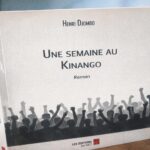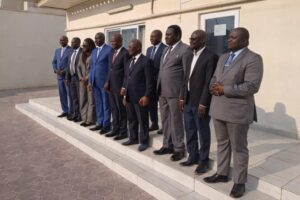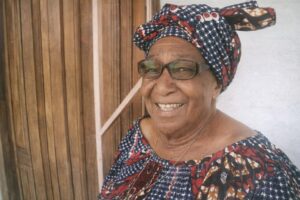Brazzaville Lights Up With Laughter
From 23 to 25 October 2025, the courtyard of the French Institute of Congo became the liveliest comedy club in Central Africa. Crowds from Makelekele to Poto-Poto queued early, smartphones ready, eager to taste the 18th tuSeo Festival’s promise of big laughs.
The three-night showcase, held under the banner “Rire en grand”, mixed punchlines, music and dance, reminding many visitors of the neighborhood bal poussière where humour traditionally spices conversations. Ticket sales were reported near full capacity, according to the organizing team (Les Dépêches de Brazzaville, 24 Oct 2025).
“Rire en grand”: A Theme That Resonates
Promoter Lauryathe Céphise Bikouta told reporters two days before the opening that comedy now stands “shoulder to shoulder with music” in the cultural economy. Her statement was less a boast than an observation: several Congolese stand-ups are touring Europe and earning streaming revenue comparable to emerging singers.
Choosing laughter as a vehicle for resilience also struck a chord after a year marked by high living costs. “People needed a release valve,” programming coordinator Pasclair Abaga explained backstage. He stressed that keeping ticket prices between 2 000 and 5 000 F CFA was a deliberate social gesture.
Local Stars Share The Spotlight
Night one erupted with Nenette, the Guyanese-French storyteller whose skits on parent-teacher meetings transcended borders. She passed the baton to Jojo La Légende, a Brazzaville favourite, who riffed on taxi rides through Avenue des Trois-Martyrs, earning roars of recognition from commuters in the crowd.
Juste Parfait and Esther Bass delivered a double-act filled with bilingual puns in Lingala and French, showing how local comedy feeds on everyday multilingual reality. Malian newcomer Garibou Fama followed with staccato storytelling, proving that accents, far from dividing, can amplify the punchline.
Workshops Nurture The Next Generation
Every morning, before curtains rose, about fifty aspiring comedians gathered in a small air-conditioned hall for writing clinics. Veteran coach Florent Mbemba guided them through crafting set-ups, encouraging participants to mine humour from market queues, power cuts and football debates rather than imitate foreign formats.
Parallel sessions tackled stage presence and microphone technique, while a laughter yoga workshop, led by therapist Ella Massamba, explored breathing as a creative tool. “It is more than giggles; it is chemistry for resilience,” she reminded the room, triggering spontaneous applause and a few cathartic tears.
An 18-Year Journey Of Innovation
Launched in 2004 as a biennial pilot, tuSeo quickly became a calendar fixture, switching to an annual rhythm after audience demand soared. Organisers say they have hosted more than 300 artists since the first edition, making it one of Central Africa’s longest-running francophone comedy gatherings.
The festival’s overseas offshoot, tuSeo rire-la-jolie, debuted in Mantes-la-Jolie in 2024 and has since toured Paris and Rouen. For Congolese expatriates, the shows are a sonic bridge to home; for French audiences, they offer a rare front-row seat to Central African wit.
Audience Reaction And Economic Spin-Off
Outside the main hall, food vendors selling makayabu sandwiches reported brisk trade, an indicator of the festival’s micro-economic ripple. Hotel occupancy in the city centre climbed by five percent over the long weekend, according to data shared by the Brazzaville Tourism Office.
For audience member Diane Kintou, the spending felt justified. “A taxi from Talangaï, tickets, snacks—we budgeted 15 000 F CFA for three of us. The memories are priceless, especially for my teenage son who wants to act,” she said, her voice half-drowned by encore chants inside.
Looking Ahead: A Stage Without Borders
Asked about future plans, Bikouta revealed negotiations with streaming platforms to broadcast selected sets, a move that could generate royalties and digital visibility for performers. She also hinted at potential partnerships with Lusaka and Abidjan festivals, creating an African comedy circuit that eases travel costs.
The city of Brazzaville, for its part, is studying ways to incorporate stand-up into cultural tourism packages linked to the upcoming Games of La Francophonie. Municipal cultural adviser Félicien Mouanga believes laughter can serve as “soft power”, projecting a welcoming image alongside music and cuisine.
Before the final curtain, Nenette summed up the festival’s ethos: “Our jokes travel faster than visas.” The audience erupted, flashlights waving like fireflies. In that moment, Brazzaville felt stitched into a wider tapestry of voices united by the contagious, cathartic sound of shared laughter.
With its eighteenth edition now archived, tuSeo’s next chapter appears poised to expand possibilities for Congolese humour, locally cherished and increasingly exportable. If laughter is indeed medicine, Brazzaville just renewed its prescription, offering residents and visitors a joyful antidote to daily pressures.
Attend tuSeo 2026: Dates And Tickets
Organisers have already pencilled in 20–22 October 2026 for the nineteenth edition and plan to sell early-bird e-tickets via a dedicated mobile app. Prices should remain stable, and students will again benefit from 50 percent discounts upon presenting their school cards at the entrance.
They also promise additional outdoor screens behind the institute’s main wall, allowing passers-by to enjoy highlights without purchasing seats, a move aimed at broadening access and cementing Brazzaville’s reputation as a friendly, laughter-filled crossroads.






















